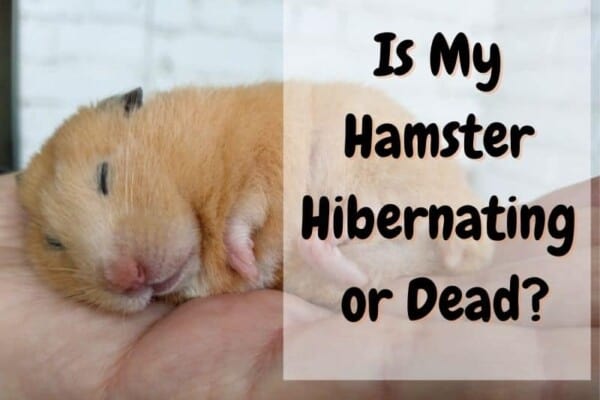If it is important to you that the pet you choose as a buddy is intelligent, then we have good news for you. Ferrets are actually very intelligent animals, even when compared to other animals that are known to be rather smart, like dogs and cats. However, this is part of why ferrets can be such little troublemakers.
We are going to go over everything that you may need to know about ferret’s intelligence. You will find out exactly how smart ferrets are, the kinds of tricks you can teach your ferret, whether or not your ferret is able to bond with you, and more. This will help you decide whether or not a ferret is right for you. And if you already have a ferret, it will help you show off your ferret’s skills when friends or family pay you a visit.
How Smart Are Ferrets?
When you think about ferrets, there are a variety of different descriptive words that you might think of, such as mischievous, flexible, fast, and energetic. However, you can feel confident in adding the word intelligent to that list of adjectives. While it is hard to quantify an animal’s intelligence, a number of different common ferret behaviors and traits hint at the fact that ferrets are actually very intelligent creatures.
There are a couple of different areas where you can see ferret’s intelligence: problem-solving skills, memory retention, and communication. Let’s take a deeper look at all three of these different forms of animal intelligence.
1. Ferrets’ Problem-Solving Abilities
First is the ability to problem-solve. Ferrets have great problem-solving skills, which have been demonstrated in research through watching and timing ferrets as they navigate through mazes or other puzzles. It is also why ferrets seem to always get exactly where you do not want them to be, no matter what preventative measures you try to put into place. If your ferret really wants to get somewhere, chances are he will figure out how to get there.
2. Ferret’s Memory Retention
The next area is memory retention. Ferrets also have fairly impressive memories. This is especially important in the wild because black-footed ferrets have to know where their burrows are or where their stashes are when they leave to go hunting. With your pet ferrets, their memory is why they will remember exactly where they have stashed their favorite toys, even after being away from the house for several days.
3. Ferrets’ Ability to Communicate
The third area where ferrets display their intelligence is their ability to communicate, specifically their ability to communicate with humans. Unlike dogs, who usually communicate with humans through sounds and facial expressions, ferrets typically communicate with humans and other animals through scent and body language. Sometimes this body language can be hard for us as humans to read, but it does not mean that ferrets are not communicating.
All of these different characteristics prove that ferrets are actually pretty smart creatures, even if their curiosity does get them into some seemingly dumb situations. It is also what makes ferrets such fun pets. However, it is also why it is so important for you to give your ferret regular mental stimulation in addition to physical stimulation through play, or else they can get really bored or even depressed. One great way to accomplish this is through puzzle toys.
What Tricks Can Ferrets Learn?

Teaching your ferret how to do certain tricks on command is a lot of fun, and it can be practical depending on the trick.
1. The “Sit” Command
One basic trick you can teach your ferret is how to sit, though this can take a couple of weeks to teach because it is not necessarily a natural thing for ferrets to do.
To teach your ferret sit, start by holding a treat directly above your ferret’s head. When they are looking at the treat, lower it slightly, but keep it out of his reach. Eventually, they will likely lower their bottom; when they do so, say the word sit and give your ferret a treat. Keep repeating this until your ferret learns what you want when you say sit.
2. The “Come” Command
Another particularly practical trick is the word come. This is especially helpful if you let your ferret explore your house. With this command, you do not have to go searching for your ferret; rather, you can just call him to you.
In order to use the command come, you are going to want to use a squeaky toy and some treats. When you want your ferret to come, call their name and squeak the toy until they come, then give him a treat. Gradually reduce the amount of squeaking you are using until your ferret comes whenever you call his name (of course, continue using treats the whole time.)
Eventually, you can start reducing the amount of time you say his name until your ferret is trained to come whenever you say his name just once.
3. Jumping Through a Hoop
One trick that is just for fun (and can really impress your guests) is jumping through a hoop. Before you teach your ferret this trick, you are going to want to make sure he knows the command come. If he does, you can move on to starting this trick.
Begin by placing a hoop on the ground. While holding a treat on the other side of the hoop, call your ferret to you. When he is close to the hoop, say “jump”. Once your ferret figures out that he needs to jump through the hoop and makes it through, reward him with lots of praise and the treat. Once you have practiced this with the hoop on the ground for a few days, you can raise the hoop slightly and continue to repeat the process.
4. Other Tricks
Of course, these three tricks are only the beginning of what you can teach to your ferret. You can also teach your ferret to do other things like
- shake a paw,
- jump into a basket,
- get into his cage
- walk backward
- bunny hop, etc.
These tricks can be used to make your life easier or just for some extra fun and bonding time with your ferret.
Are Ferrets Smart Enough to Change Their Bad Habits?
1. Ferret and Biting
2. Litter Training your Ferret
3. Destructive Habits in Ferrets
Ferrets’ Intelligence Compared to Other Animals

A great way to better understand an animal’s intelligence level is to compare them to other well-known animals. In this section, we are going to take a look at ferret’s intelligence in comparison to the intelligence of dogs, cats, hamsters, and rats.
1. Ferrets Vs. Dogs
Dogs and ferrets are actually fairly similar in intelligence levels, so it depends a lot on the specific ferret or dog you have when you are debating which one is more intelligent. For the most part, ferrets typically have better problem-solving skills/creativity. Ferrets seem almost constantly curious and will keep trying to figure out a problem or what something is until they succeed.
This can make it really hard to ferret-proof a house. On the other hand, dogs tend to be better at communicating with humans, though there is some debate whether this is because they are smarter or because they simply communicate in a way that we as humans find easier to understand.
The other important thing to keep in mind when considering dogs versus ferrets is that there is more variation between dog breeds than there is in ferrets. Some dog breeds like German Shepherds or Golden Retrievers are extremely intelligent, while others are much less so.
2. Ferrets Vs. Cats
It is easier to compare ferrets and cats when it comes to intelligence than it is to compare ferrets to dogs. This is because cats and ferrets are actually similar in many ways. When it comes to how smart they are, ferrets tend to outsmart cats in many ways.
For instance, ferrets outsmart cats in addition to dogs when it comes to problem-solving. Additionally, they tend to rank between dogs and cats when it comes to memory retention. When it comes to communication, ferrets and cats are actually very similar, both using body language and sounds like hissing to communicate.
3. Ferrets Vs. Hamsters
When you first think about hamsters, you may not think that they are particularly intelligent creatures. It is hard to believe that something that small could be all that smart, but hamsters are actually smarter than we give them credit for. Hamsters can learn their name, learn who their owner is, and some can even learn very basic tricks.
However, this does not mean that hamsters are nearly as intelligent as ferrets. Hamsters will not be able to problem-solve nearly as well as ferrets, remember nearly as much, or communicate with humans very effectively.
4. Ferrets Vs. Rats
If you do not know very much about rats, you may assume that they are not very smart animals. They get a bad rap for being dirty, so it can be hard to picture them as intelligent creatures, but anyone who has owned a rat knows that is simply not true.
Like ferrets, rats are very social creatures that you can tame easily, and they are also very intelligent. They can learn a number of different ticks, including fetching small balls, jumping hurdles, running through a maze or around poles, and rolling over. Some people even teach rats how to untie a shoelace.
Nevertheless, a ferret’s ability to learn how to communicate with humans and other animals so effectively puts them above rats when it comes to intelligence.
How Closely Do Ferrets Bond With Their Owners?
When we as humans bring home a new pet, no matter what kind of pet it is, we tend to bond to them pretty quickly, but we can be left wondering whether they feel the same bond towards us. Of course, this varies from one pet to the other, but when it comes to ferrets, they actually can form pretty strong attachments or bonds with their owners.
There are a couple of reasons why ferrets are able to bond so much with their owners. First, ferrets are naturally extremely social creatures that like to spend time with other ferrets, humans, or even other kinds of pets like a family dog or cat. This desire for social interaction helps guarantee that your ferret will actually want to spend time with you.
Their intelligence also helps them form a bond with their owners. Before long, they will be able to recognize who you are. As long as you take proper care of your ferret, he will start to connect to you with fun, food, and cuddles- all things that ferrets love and will make them love you.
Now, ferrets do not necessarily bond equally with every single person in the household. They can get especially attached to certain people, even if they like everyone in the household. Their favorite people are usually the one that is around the most or regularly provide them with food. Or it could just be the person that they have identified as the one in charge.
If your ferret does not seem super attached to you right away, you do not need to worry. It will take your ferret some time to get used to its new environment, and it will also take some time for your ferret to figure out that he can trust you. Just be patient and do not force your ferret to cuddle or play with you if he seems standoff-ish.
Once the attachment is formed, you may not ever get a moment alone again. Ferrets tend to like to follow the people they are attached to. Whether you are washing dishes, doing some work, or trying to take a shower, your ferret will likely try to join you.
References:
- Ferret behavior, PETER G. FISHER
- Identifying Behavioural Traits and Underlying Personality Dimensions in Domestic Ferrets (Mustela putorius furo), Sarah Talbot, Rafael Freire and Skye Wassens
- Dogs Have the Most Neurons, Though Not the Largest Brain: Trade-Off between Body Mass and Number of Neurons in the Cerebral Cortex of Large Carnivoran Species
- Ferrets: Man’s Other Best Friend, Jason G. Goldman













